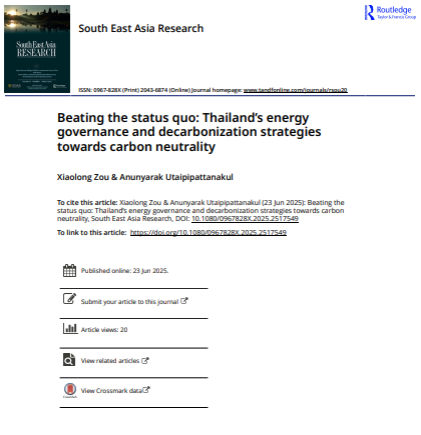
Keyword(s)
Author(s)
Xiaolong Zou and Anunyarak Utaipipattanakul
Country(ies)
Published Date
Access
DOI
1. School of International & Public Affairs, Jilin University, Changchun, People’s Republic of China
In 2021, Thailand’s prime minister Prayut Chan-o-cha expressed his country’s commitment to combating climate change, setting the goals of achieving carbon neutrality by 2050 and net-zero emissions by 2065 at COP26 in Glasgow, UK. Considering these commitments, the implementation of renewable energy policies and actions has become imperative for Thailand to fulfil its ‘net-zero’ emissions pledges. Efficient utilization of energy resources by the Thai government not only facilitates a successful transformation of the country’s energy structure but also plays a crucial role in realizing sustainable development goals by 2050. However, the attainment of these targets remains uncertain. This paper begins by reviewing the current status of Thailand’s energy structure and governance, highlighting potential energy-related concerns. Subsequently, it analyses the decarbonization strategies and policies pertaining to Thailand’s energy structure, considering influencing factors and potential scenarios. The findings of this study offer additional insights into Thailand’s energy sustainability, serving as a useful resource for stakeholders and policymakers.